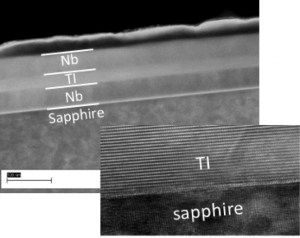Summary
Proximity engineered hybrid materials have shown promise for topological quantum information processing. This form of quantum computing provides a stable, error-tolerant approach for building scalable quantum information processors. Topological quantum computing relies on braiding non-Abelian particles, such as Majorana fermions, which do not exist in nature. One can however use materials engineering to create these particles in topological insulators that are proximity coupled to superconductors and magnetic insulators. In this project we synthesize high quality topological insulators and superconductors, couple them together to form a clean interface (“strong proximity”), and use tunneling spectroscopy to identify the presence of Majorana fermions. Once we are able to move the Majorana particles in a controlled fashion, we then braid an array of them and extract topological quantum information. This will provide the first demonstration of non-Abelian statistics on topological insulators and the first realization of topological quantum computing.

Figure 1. Example of a superconductor/topological insulator (TI) heterostructure on sapphire. Well-defined interfaces are clearly visible.
Related Content

Engineering and Characterizing Programmable Interaction Graphs in a Trapped Ion Quantum Simulator
Summary Quantum simulators have the potential to bring unprecedented capabilities in areas such as the discovery of new materials and drugs. Engineering precise and programmable interaction graphs between qubits or spins forms the backbone of simulator applications. The trapped ion system is unique in that the interaction graph between qubits can be programmed, in […]
July 24, 2018

Topological Quantum Computing on Majorana Platform
Full-scale quantum computing will require the capability for error-tolerant quantum information processing.
January 11, 2017

Metasurfaces for high-efficiency parametric downconversion and complex quantum state generation
Summary Entangled photon sources are crucial for quantum computing, quantum sensing, and quantum communication. Of growing importance are sources relying on spontaneous parametric downconversion (SPDC). Unfortunately, these sources of entangled photons are often constrained by momentum conservation laws. To overcome this limitation and expand the possibility of quantum state engineering, we intend to use metasurfaces […]
February 1, 2023

Topological Properties of Exciton-Polaritons in a Kagome Lattice as a Solid-state Quantum Simulator
Summary In this project, we build a solid-state quantum simulator for engineering a specific Hamiltonian. Quantum simulators are purpose-built devices with little to no need for error correction, thereby making this type of hardware less demanding than universal quantum computers. Our platform consists of exciton-polariton condensates in multiple quantum-wells sandwiched in a semiconductor Bragg […]
December 8, 2018

